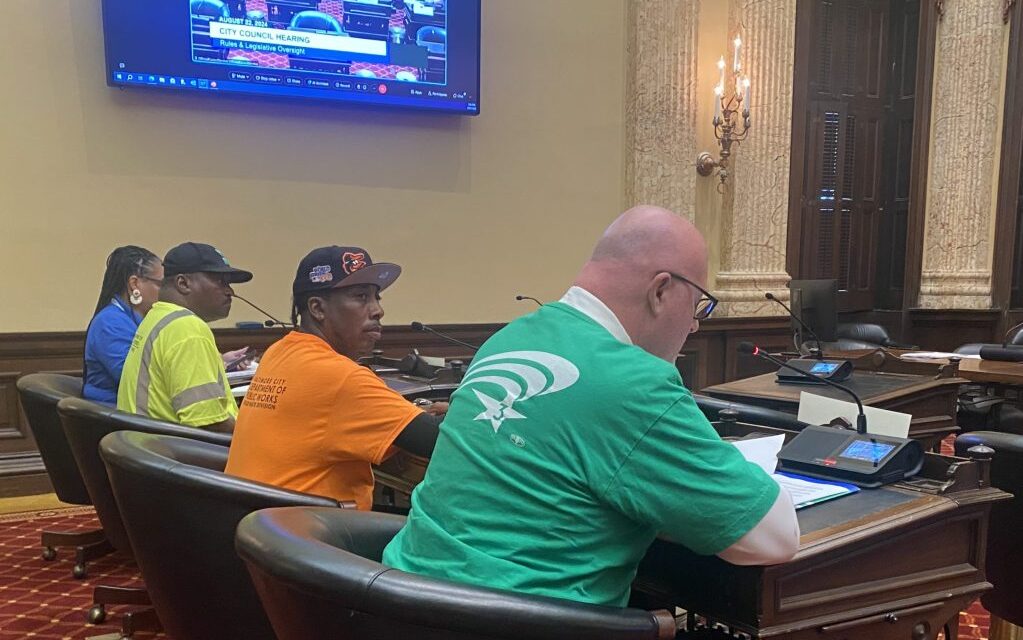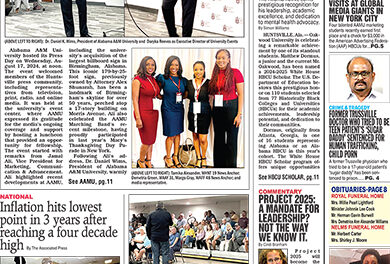By Tashi McQueen
AFRO Staff Writer
tmcqueen@afro.com
Baltimore City Council members pressed the Baltimore City Department of Public Works (DPW) for better communication with employees and policies at a much-anticipated city council hearing on Aug. 22.
This hearing comes after the heat-related death of DPW worker Ronald Silver II, 36, on Aug. 2. The council acknowledged the family during the hearing and gave them a platform to speak about their loss.
“This pain is indescribable, and it is not anything I would wish on my worst enemy,” said Faith Johnson, Silver’s mother.
Johnson commended the council for calling the hearing, but pushed the need for the city “to do what should have been done before my son died.”
“Don’t play politics with my son’s life,” she said.
Throughout the hearing city council members questioned the city’s decision to hire Conn Maciel Carey, a D.C.-based law firm, to do an independent investigation of DPW’s work conditions and practices.
“This is a firm that represents companies largely trying to push back on the Occupational Safety and Health Administration (OSHA),” said Councilman Zeke Cohen (D-District 01).
A proposed OSHA heat stress ruling would mandate certain employers give workers access to regular hydration, rest breaks and cooling areas among a host of other training and emergency planning measures.
In recent years, Conn Maciel Carey has led a coalition of employers and trade associations representing airline operations, petroleum refining and more, largely to ensure OSHA heat regulations don’t overburden employers.
The mayor’s office further explained their choice in a statement.
“Conn Maciel Carey has been retained to assess the city’s current policies and practices and then to help provide the city with a set of recommendations about heat safety that will be shared publicly before any decisions are made about implementation,” said the mayor’s office in a statement. “The firm’s recommendations will be one part — and will be incorporated alongside discussions with and recommendations made by our partners in the union.”
The AFRO reached out to Conn Maciel Carey for comment but did not receive a timely response.
According to OSHA, out of 66 heat-related illness investigations from 2011-2016, 80 percent of heat-related deaths occurred in outdoor workplaces.
Aside from safety measures, council members called to attention the need for a better work culture at DPW.
“We want folks to feel our pain,” said Glover, who spent 16 years working for DPW. “See what we see. Feel what we feel.”
Longtime DPW worker Michael Stanley gave an inside look at some of the issues he has faced over the years.
Stanley said he’s seen upper-level DPW employees verbally disrespect workers on the job.
“Instead of sympathizing with employees and helping us make it through the day, they want to try to make it as bad as possible for them,” said Stanley. “They want to send them home angry.”
Antoinette Ryan-Johnson, president of the City Union of Baltimore, emphasized the need for DPW to properly train their workers.
“Baltimore City needs to train every employee,” said Ryan-Johnson. “You cannot hire someone and expect them to know what the policies and procedures are if you do not train them.”
Stanley said he’s had to help teach newcomers while also doing his own job, as they’re often thrown into the work without proper training.
Cohen asked if DPW would commit to working with frontline sanitation workers, their union and city council members.
“I think the workers need to inform the process,” said Cohen.
Councilwoman Odette Ramos (D-District 14) questioned DPW Director Khalil Zaied’s lack of knowledge of DPW facility issues and work conditions during his site visits.
Zaeid admitted he has not done DPW ride-alongs to speak directly to employees and see their daily work conditions.
“By the time I get to a lot of those sites, in many cases, most of the routine service drivers and laborers have left,” said Zaeid.
His responses prompted Ramos to speak on what it means to be a leader.
“Leadership is supposed to be there to make sure that the workers have everything that they need to be able to perform their duties,” she Ramos.
The director eventually committed to doing a ride-along on one of the DPW trucks within the next few weeks.
The post Baltimore City Council pushes for better communication and policies following worker’s death appeared first on AFRO American Newspapers.











